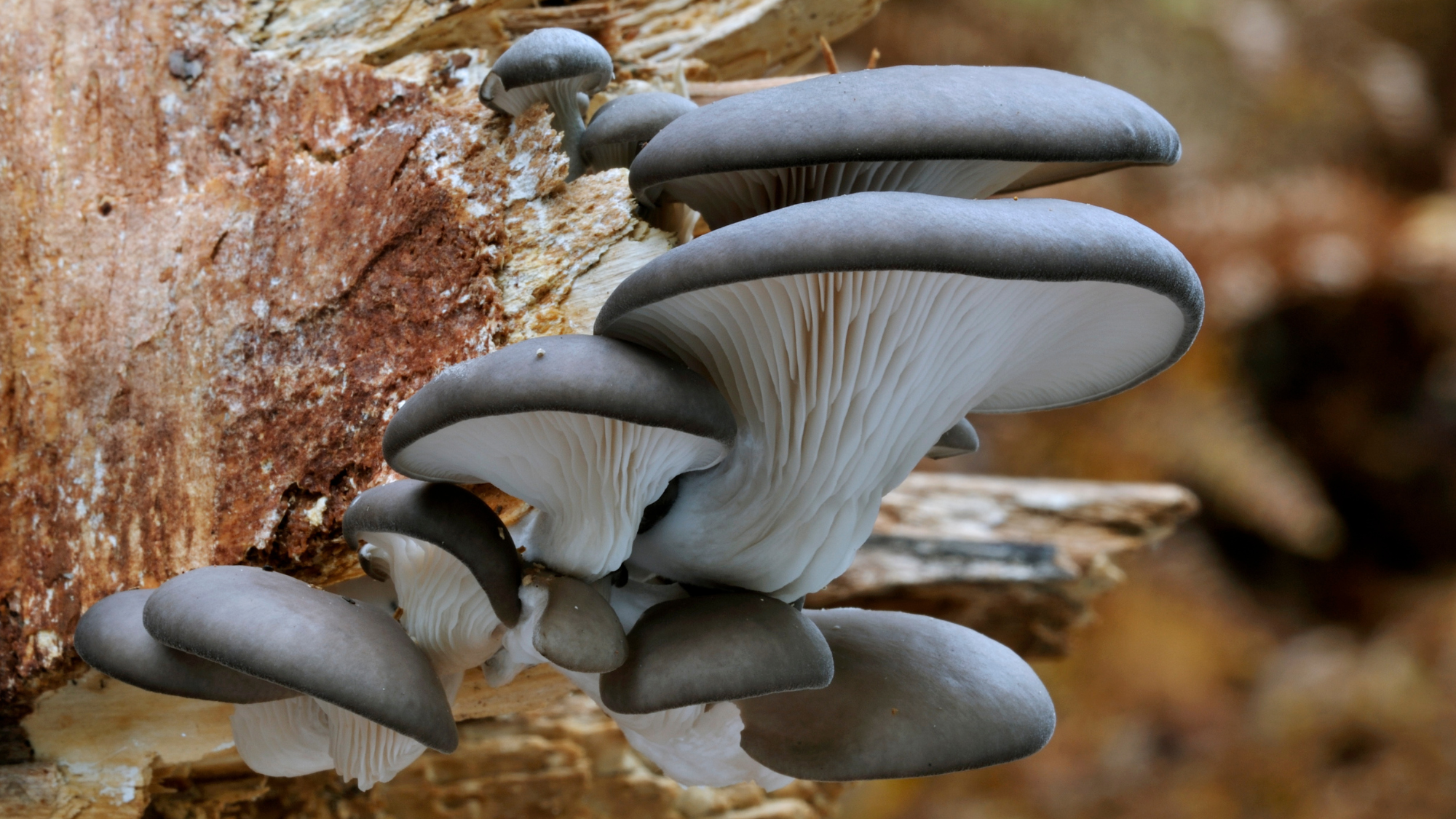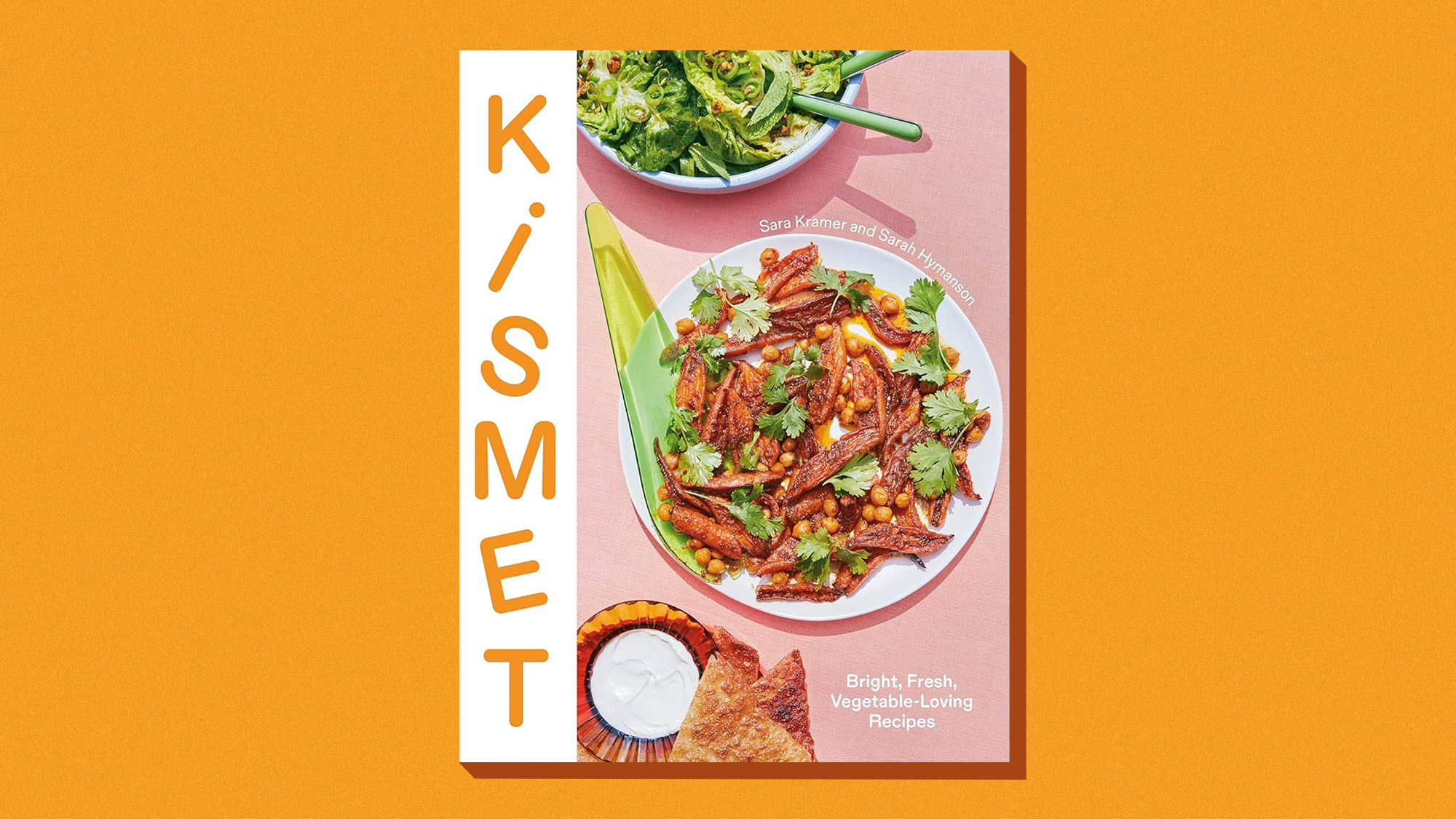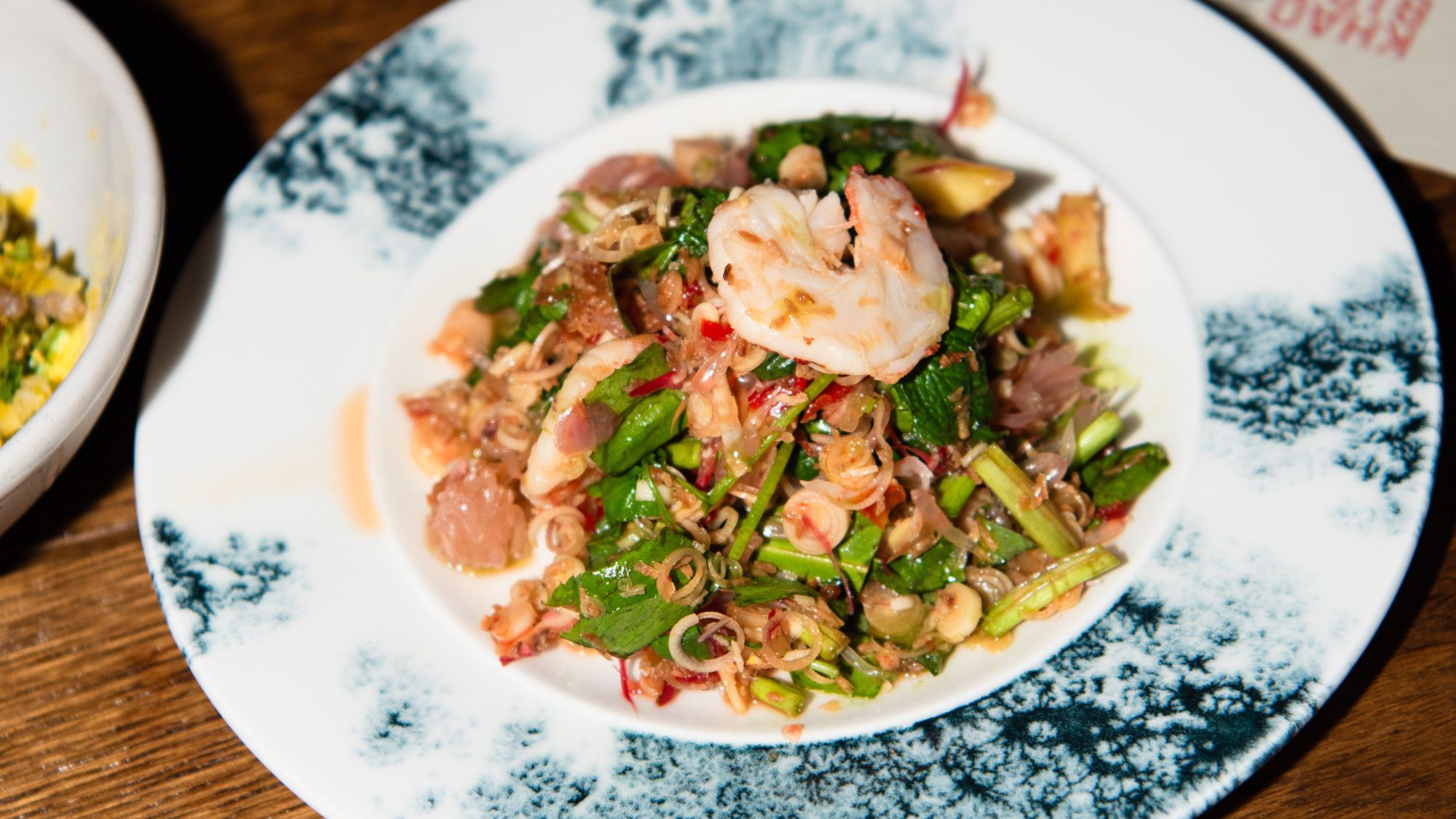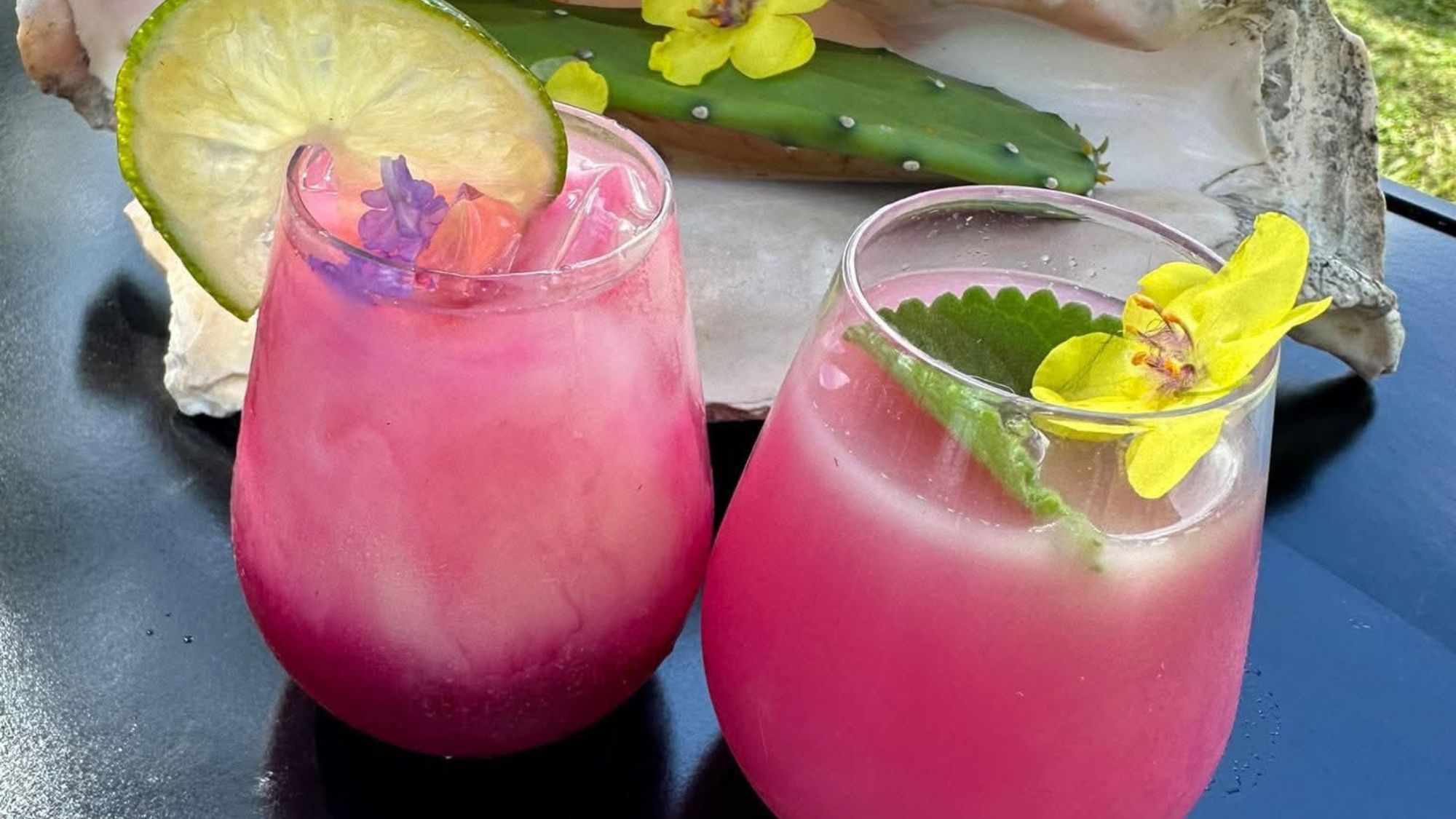A guide to winter foraging in the UK
From oyster mushrooms to sea beet, keep an eye out for these tasty edible plants

A free daily email with the biggest news stories of the day – and the best features from TheWeek.com
You are now subscribed
Your newsletter sign-up was successful
The parks and woods might be looking a little barren at this time of year but there are "rich pickings to be had for keen foragers", said Fergus Collins on BBC Countryfile. Winter is an excellent time to travel to the coast in search of sea vegetables and shellfish that "you'd pay a pretty penny for in most fishmongers".
Foraging isn't a new idea, said Sue Quinn in The Telegraph. The fine dining restaurant Noma in Copenhagen "kicked off a global trend for exotic wild food" when it opened in 2003. But it's the "undervalued bounty closer to home" that we should be "tucking into, not tossing away". If the council is letting weeds flourish in your local area, the nuisance plants "could be part of your next meal". Weeds can be filled with vitamins and minerals, making them "hugely beneficial" to your health.
John Wright, one of the UK's most well-known foragers, told The Telegraph that budding weed hunters should "be sensible about road pollution" and forage only on the windward side of the road, at least two to three metres from cars, to "avoid contaminants". It's also worth avoiding paths commonly frequented by dog walkers, steering clear of areas known to be sprayed with pesticides, and washing all weeds thoroughly. Most important of all, Wright says foragers should refer to a "reputable guide with clear illustrations" to ensure deadly plants aren't mistaken for edible weeds.
The Week
Escape your echo chamber. Get the facts behind the news, plus analysis from multiple perspectives.

Sign up for The Week's Free Newsletters
From our morning news briefing to a weekly Good News Newsletter, get the best of The Week delivered directly to your inbox.
From our morning news briefing to a weekly Good News Newsletter, get the best of The Week delivered directly to your inbox.
"As always", added Collins, "be sure to forage responsibly and leave plenty for others – and wildlife – to eat as well."
Here are some of the best foods to look out for in the wild on your next winter walk.
Stinging nettles
This "highly nutritious" plant is an "all-too-familiar sight" in parks and woodland around the UK, said Quinn in The Telegraph. "Tasty" and "versatile", it's packed with vitamins A and C and iron. Be sure to "wear gloves and use scissors" when picking stinging nettles to avoid the "hair-like prickles covering the leaves and stems". Once cooked it tastes "similar to spinach", with a "punchier, pleasingly ferrous flavour"; blitz it into soups, stews and pesto.
Sea beet
Sea beet looks like a "thicker, shinier, juicier spinach" but is "only ever found a few hundred yards from the sea", said Collins on BBC Countryfile. When you get it home, give it a thorough rinse to get rid of the salt and "braise in butter". It tastes like the "finest spinach" with an added touch of sweetness and a "less bitter undertone".
A free daily email with the biggest news stories of the day – and the best features from TheWeek.com
Oyster mushrooms
Found growing in "clusters" on "decaying hardwoods" throughout much of the year, these "delicious" fungi are a "forager's delight", said Pete Compston in Northern Life. Oyster mushrooms have a "mild, slightly sweet and earthy taste with a delicate texture", making them an excellent addition to risottos and stir-fries. Known for their "immune-boosting properties", they are packed with minerals and antioxidants. Look out for their "distinctive fan or oyster-shaped caps" which can be white, light grey or brown.
Chickweed
Chickweed grows all year round in the UK but is commonly found in the "cooler months", said Quinn in The Telegraph. The entire plant (excluding the root) can be eaten "raw or cooked" in a variety of dishes from salads to soups. Look out for the "mohawk" of fine hairs along the stem to help identify chickweed, and be careful to avoid confusing it with spurge or scarlet pimpernel which are both poisonous.
Mussels
Perhaps the best "protein-for-effort return of all foraged foods in the UK", mussels are well worth looking out for on your next coastal walk, said Collins on BBC Countryfile. Be "wary of the tides" when foraging at the "lowest ebb", and pick mussels only when you're certain the water is clean; the "rocky coasts" of Cornwall and Devon are "ideal". Leave the mussels to "purge themselves of any grit" in a bucket of water overnight, before scrubbing off the beards and barnacles, and steaming them with butter and white wine to make moules marinières.
Irenie Forshaw is the features editor at The Week, covering arts, culture and travel. She began her career in journalism at Leeds University, where she wrote for the student newspaper, The Gryphon, before working at The Guardian and The New Statesman Group. Irenie then became a senior writer at Elite Traveler, where she oversaw The Experts column.
-
 How to Get to Heaven from Belfast: a ‘highly entertaining ride’
How to Get to Heaven from Belfast: a ‘highly entertaining ride’The Week Recommends Mystery-comedy from the creator of Derry Girls should be ‘your new binge-watch’
-
 The 8 best TV shows of the 1960s
The 8 best TV shows of the 1960sThe standout shows of this decade take viewers from outer space to the Wild West
-
 Microdramas are booming
Microdramas are boomingUnder the radar Scroll to watch a whole movie
-
 The year’s ‘it’ vegetable is a versatile, economical wonder
The year’s ‘it’ vegetable is a versatile, economical wonderthe week recommends How to think about thinking about cabbage
-
 In Okinawa, experience the more tranquil side of Japan
In Okinawa, experience the more tranquil side of JapanThe Week Recommends Find serenity on land and in the sea
-
 One great cookbook: Sara Kramer and Sarah Hymanson’s ‘Kismet: Bright, Fresh, Vegetable-Loving Recipes’
One great cookbook: Sara Kramer and Sarah Hymanson’s ‘Kismet: Bright, Fresh, Vegetable-Loving Recipes’the week recommends The beauty and wonder of great ingredients and smart cooking
-
 Luke Larsson’s prawn and pomelo salad
Luke Larsson’s prawn and pomelo saladThe Week Recommends Pomelo-sweetened prawns meet spicy dressing and herbs in a sharp Thai salad
-
 Doreen Williams-James’ prickly pear juice recipe
Doreen Williams-James’ prickly pear juice recipeThe Week Recommends Jewel-toned, natural juice is a thirst-quenching treat
-
 The best food books of 2025
The best food books of 2025The Week Recommends From mouthwatering recipes to insightful essays, these colourful books will both inspire and entertain
-
 8 restaurants that are exactly what you need this winter
8 restaurants that are exactly what you need this winterThe Week Recommends Old standards and exciting newcomers alike
-
 Appetites now: 2025 in food trends
Appetites now: 2025 in food trendsFeature From dining alone to matcha mania to milk’s comeback